
This guidance note is a practical resource for Ombuds institutions and NHRIs, and those who support them. The publication can help an Ombuds institution or NHRI engage more effectively with police, militaries and other security sector institutions to monitor and reinforce how the human rights of men and women working there are upheld. It can strengthen oversight of how well police and others meet the needs of communities.
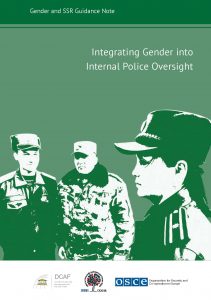
Designed as a complement to the DCAF, OSCE/ODIHR, UN-INSTRAW Gender and Security Sector Reform Toolkit, and DCAF’s Gender Self-Assessment Guide, the guidance notes focus on integrating gender into systems and processes within police services and armed forces, and on equipping external oversight bodies, such as Ombuds institutions and national human rights institutions, to appropriately prioritise gender.

The Norwegian defence sector promotes certain general values of openness, broadmindedness, respect, responsibility, and courage. The sector encompasses the Ministry of Defence and four administratively subordinate agencies: the Norwegian Armed Forces, the Norwegian Defence Estates Agency, the Norwegian National Security Authority, and the Norwegian Defence Research Establishment. All bodies of the Norwegian Ministry of Defence must adhere to the values platform outlined in this publication.
For more information please
download the document Eng
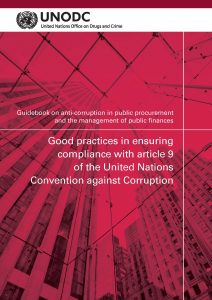
This Guidebook serves as a reference material for governments, international organizations, the private sector, academia and civil society, by providing an overview of good practices in ensuring compliance with article 9 of UNCAC, which requires establishing appropriate systems of public procurement, as well as appropriate systems in the management of public finances.
For more information please
download the document Eng
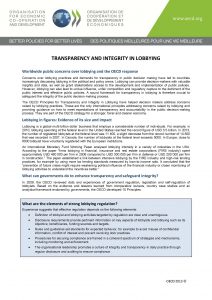
The OECD Principles for Transparency and Integrity in Lobbying help decision-makers address concerns raised by lobbying practices. These are the only international principles addressing concerns raised by lobbying and providing guidance on how to meet expectations of transparency and accountability in the public decision-making process. They are part of the OECD strategy for a stronger, fairer and cleaner economy.
For more information please
download the document Eng
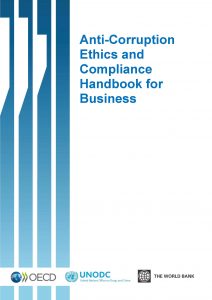
The Handbook has been developed to serve as a useful, practical tool for companies seeking compliance advice in one, easy-to-reference publication. The Handbook is divided into three sections. The first section provides an overview of the international anti-corruption framework, within which companies conducting international business must operate. The second section provides a brief introduction to how companies can assess their risk in order to begin developing an effective anti-corruption ethics and compliance programme. The third and most significant section brings together major business guidance instruments.
For more information please
download the document Eng
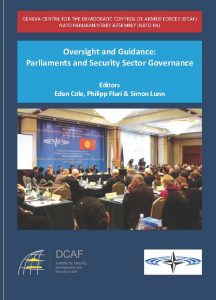
This third version of the DCAF-NATO PA ‘Vademecum’ underlines the essential role that parliaments must play in ensuring democratic oversight of the security sector. Updating key information on best practices related to parliamentary oversight and guidance of the security sector, the volume retains a special focus on defence affairs and puts the oversight role of parliament into political and military contexts. Aimed at democratic institutions within NATO partner-countries, it provides an introduction to the overarching principles of security sector reform and key oversight mechanisms and best practices.
For more information please
download the document Eng
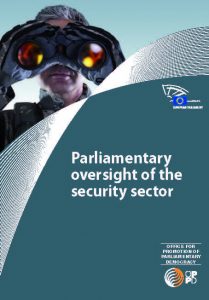
This paper represents a further addition to the series of publications on issues in parliamentary practice from the Office for Promotion of Parliamentary Democracy (OPPD). The main objective of this publication is to provide an overview of the main issues affecting parliamentary oversight and, more generally, democratic governance of the security sector in new and emerging democracies.
For more information please
download the document Eng
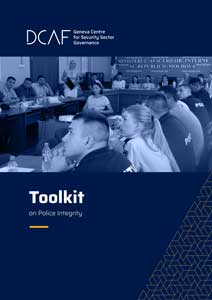
The Toolkit on Police Integrity aims to assist police services in designing effective measures to curb police corruption, increase their ability to fight crime, improve public security, and strengthen the rule of law and public trust in the police. The Toolkit contains chapters covering a range of topics, such as corruption and policing, supporting police officers facing ethical questions, internal control, external oversight and control, and capacity building.
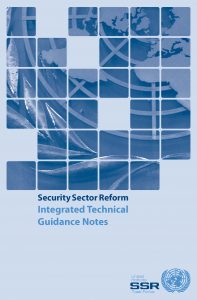
The UN SSR Integrated Technical Guidance Notes are a useful tool for anyone interested in Security Sector Reform and Democratic Security Sector Governance. The purpose of the Integrated Technical Guidance Notes (ITGNs) is therefore to foster a “One United Nations” approach to SSR by providing a common framework to guide United Nations support to nationally led SSR efforts.
For more information please
download the document Eng
Page 2 of 8



